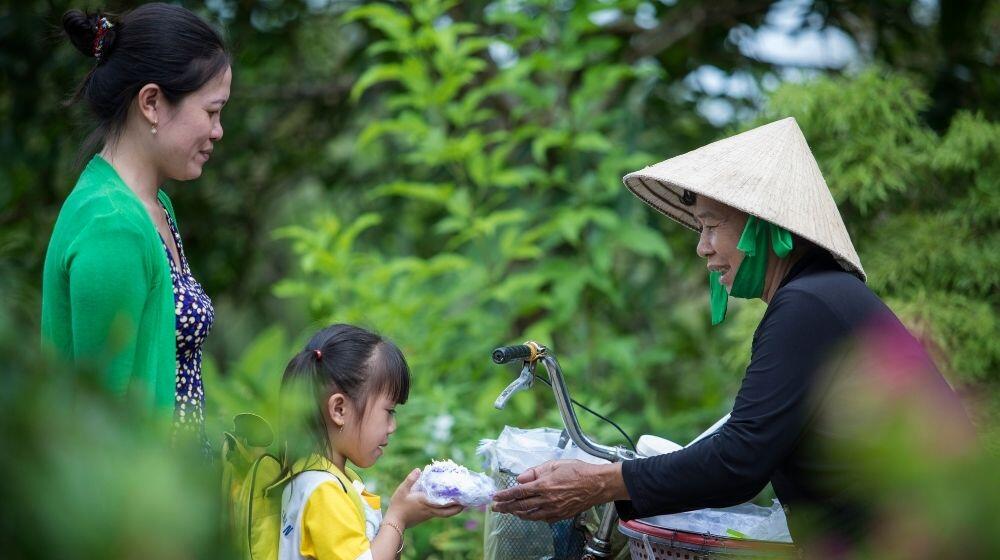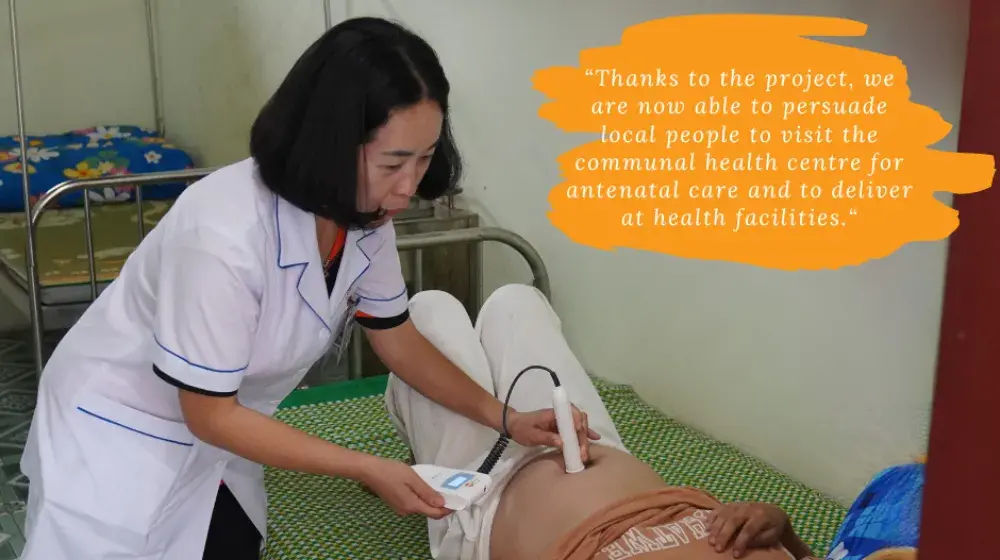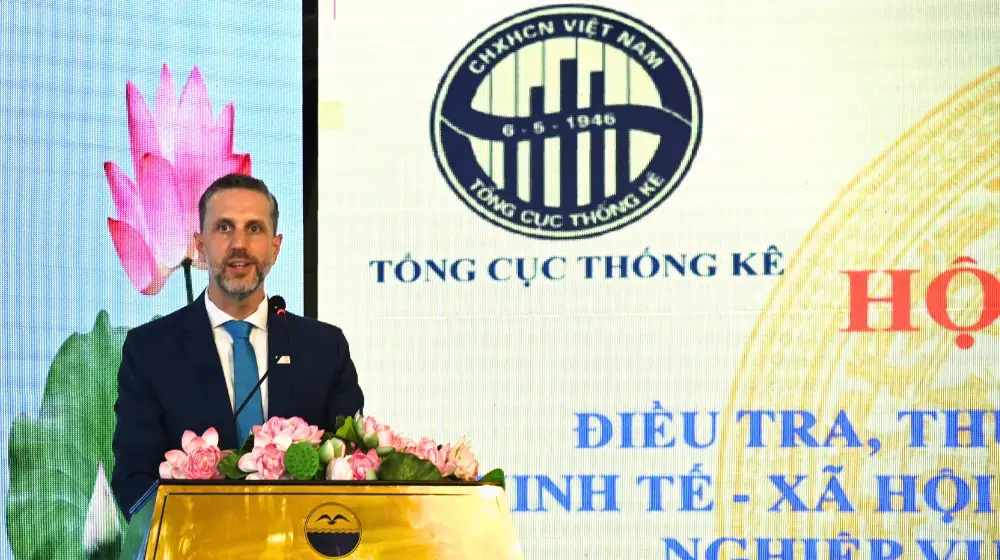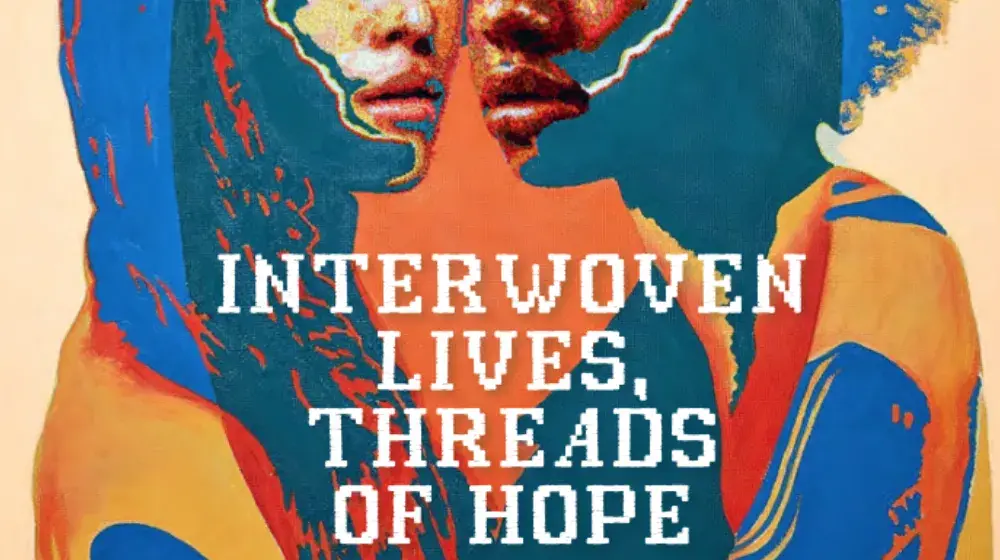Hanoi, 4 February 2022 – The Executive Board of the United Nations Population Fund (UNFPA) approved the 10th country programme for Viet Nam in the amount of $26.5 million to achieve the sustainable development goals (SDGs) by 2030, targeting those at risk of being left behind, including women and girls, adolescents and youth, older persons, ethnic minorities, migrant workers, people with disabilities, and survivors of gender-based violence.
Launched the Country Programme for Viet Nam in Hanoi today, UNFPA commits to supporting the implementation of the National Plan of Action for the Viet Nam’s Sustainable Goals for the Decade of Action and the new Socio-Economic Development Plan (2021-2026) under the Socio-Economic Development Strategy (2021-2030) framework, both of which place focused attention to population dynamics and population issues.
The 10th Country Programme was developed, following extensive consultations with the Vietnamese government and other national and international stakeholders. It is in alignment with the United Nations Sustainable Development Cooperation Framework for Viet Nam to fulfil the transformative promise of “Leaving no one behind” by directly contributing to two areas: Inclusive Social Development, and Governance and Access to Justice, thus reducing inequalities and vulnerabilities.
Ms. Naomi Kitahara, UNFPA Representative for Viet Nam, highlighted the significance of the 10th cycle of UNFPA’s work in Viet Nam. She emphasised: “Building on the successes of the previous Country Programmes, UNFPA’s interventions and initiatives in the next 5 years will aim at achieving the transformative results of the UNFPA’s corporate Strategic Plan, towards Viet Nam with Zero preventable maternal death, Zero unmet need for family planning, and Zero gender-based violence and other harmful practices against women and girls. Rights-based, gender-sensitive, and people-centred approaches will be used, and interventions in relation to humanitarian preparedness and response in light of climate change will be mainstreamed across all programmatic intervention areas.”
As prioritised by the Vietnamese Government, much attention of UNFPA Country Programme 2022 - 2026 will be placed to digital transformation and data revolution by effectively using Information Communication Technology particularly to reach those furthest behind.
The new UNFPA Country Programme has been designed to achieve the following results:
- Adolescents and Youth: The enabling environment is created to support comprehensive youth development and participation, including in disaster management policies and programmes and to advance the ICPD Programme of Action.
- Population Aging and Social Protection: A coherent and inclusive social protection system is enhanced, applying life-cycle and gender-transformative approach for ageing and meeting the individual needs of the most vulnerable groups.
- Equitable Access to Sexual and Reproductive Health and Rights: Vulnerable groups including ethnic minorities, adolescents and youth, PWDs, and migrant workers have increased equitable access to comprehensive and gender-transformative SRHR information and services, including in the humanitarian-development nexus.
- Data and Evidence for Policy and Programma Making: Evidence-based and rights-based policy and programme making, budgeting and monitoring are strengthened based on data production, analysis and use.
- Gender-Based Violence and Harmful Practices: Harmful attitudes that accept violence and perpetuate gender inequality especially those of young people are transformed to reduce GBV and other harmful practices including in the humanitarian-development nexus.
- Multi-sectoral Response to Gender-Based Violence and Harmful Practices: The multisectoral response is strengthened to address gender-based violence and other harmful practices at national and subnational levels.
To achieve these results, UNFPA will partner with the Government, national institutions and CSOs fully in line with the principles of national ownership and mutual accountability. UNFPA and the Government of Viet Nam, through the Ministry of Planning and Investment as the Government coordinating agency, will be jointly accountable for the management of the programme, and will plan, monitor and evaluate programme implementation using the results-based management approach.
UNFPA will also continue to strengthen its technical and financial base in partnership with development partners such as Australia, Japan, South Korea, Norway among others, as well as non- traditional partners and the private sector entities including Bloomberg Philanthropies, Vital Strategies, and MSD.
In terms of UNFPA’s humanitarian support to Vietnam, UNFPA will focus on the provision of integrated sexual and reproductive health care, the prevention and response to gender-based violence, and support for the elderly population groups. The rights and choices of women and girls, young people and older persons affected by humanitarian crises will be prioritized, leaving no one behind.
-end-
Note to editors:
Viet Nam stands at a lower middle-income country but is one of the fastest growing economies.
However, the country faces the following population issues:
The demographic shifts:
Vietnam recorded the highest number and proportion of young people in its history, creating the potential for a demographic dividend; yet the population is ageing rapidly – will become an “aged” population within 20 years.
Disparities in sexual and reproductive health and rights (SRHR):
The maternal mortality ratio (MMR) has declined over the decades, but it is 2-3 times higher among ethnic minorities. Likewise, unmet need for family planning is higher among ethnic minorities and migrants. Young people lack adequate and comprehensive sexual and reproductive health information and services. The adolescent birth rate is estimated at 11 per 1,000, and cervical cancer affects SRHR status for women in Viet Nam.
Inadequate social protection system for older persons
The existing national social protection system has not been able to accommodate the needs of the older persons: 48% of older people are not covered by national social protection schemes; 80% of people with disabilities (PWDs) are old people aged 60 and above.
Gender-based violence and other harmful practices
According to the UNFPA-supported 2019 National Study on Violence against Women, nearly 2 in 3 women still experience intimate partner violence in their lifetime, and 40.3% of women experience physical and/or sexual violence since age of 15. Gender-based violence is costing Viet Nam 1.81% of GDP. The Sex ratio at birth is the third highest in Asia, meaning more boys than girls are born in the country, indicating a significant gender imbalance.
For further information please contact:
Ms. Dinh Thu Huong, UNFPA Communications Officer
Email: dhuong@unfpa.org
Phone: 0913 301 539





